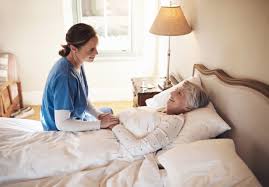Introduction to Overnight Care for the Elderly
Overnight care for the elderly involves having a caregiver or professional in the home during the night to provide assistance with various needs. This type of care is especially important for seniors who may have mobility issues, chronic health conditions, or cognitive impairments such as dementia. The presence of an overnight caregiver can prevent accidents, provide comfort, and ensure that any medical needs are promptly addressed.
In some situations, the need for overnight care becomes immediate. Perhaps a loved one has been discharged from the hospital after surgery, or there has been a sudden decline in their health. Whatever the reason, finding reliable and qualified overnight care quickly is essential to provide peace of mind and ensure the safety of your elderly family member.
The Importance of Overnight Care
Nighttime can be a particularly vulnerable period for the elderly. As they age, they may experience a range of issues that make them more susceptible to accidents and health complications during the night. For instance, elderly individuals with conditions such as arthritis or osteoporosis may find it difficult to get out of bed, increasing the risk of falls. Those with dementia or Alzheimer’s may become disoriented and wander during the night, leading to dangerous situations.
Overnight caregivers are trained to handle these challenges. They assist with nighttime routines, such as helping the elderly get to bed, providing bathroom assistance, and ensuring they are comfortable throughout the night. Additionally, they are alert to any signs of distress or medical emergencies, allowing for quick intervention when necessary.
Identifying the Need for Immediate Overnight Care
There are several scenarios where immediate overnight care may become necessary. Understanding these situations can help you identify when to seek this type of care:
-
Post-Hospitalization Care: After surgery or a hospital stay, an elderly person may require overnight care to manage pain, monitor recovery, and assist with mobility.
-
Sudden Health Decline: A sudden deterioration in health, such as after a stroke or a fall, may require immediate overnight care to ensure the elderly person receives the necessary support.
-
Progressive Conditions: Chronic conditions such as Parkinson’s disease or advanced stages of Alzheimer’s often require increasing levels of care, including overnight supervision.
-
Caregiver Burnout: Family caregivers who have been providing round-the-clock care may reach a point of exhaustion, necessitating immediate assistance to ensure their loved one continues to receive proper care.
How to Find Immediate Overnight Care
When the need for overnight care is urgent, time is of the essence. Here are some steps to help you find the right care quickly:
-
Reach Out to Home Care Agencies: Home care agencies specialize in providing trained caregivers for various needs, including overnight care. Many agencies offer 24/7 service and can arrange care on short notice.
-
Use Online Care Platforms: Websites and apps that connect families with caregivers can be a quick and efficient way to find overnight care. These platforms often allow you to filter caregivers based on experience, location, and availability.
-
Contact Local Senior Centers or Hospitals: Local senior centers or hospitals may have resources or referrals for urgent overnight care services. They can also provide guidance on the type of care needed.
-
Ask for Recommendations: Word of mouth is a powerful tool. Ask friends, family members, or neighbors if they know of any reliable caregivers or agencies that can provide overnight care immediately.
-
Consider Respite Care Facilities: Some assisted living facilities offer short-term respite care, which can be an option if immediate home care is not available.

















